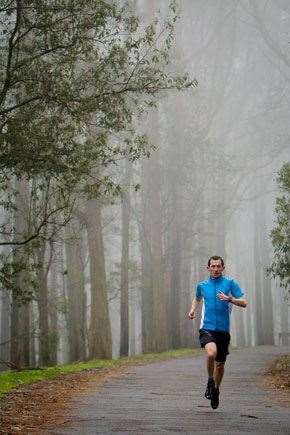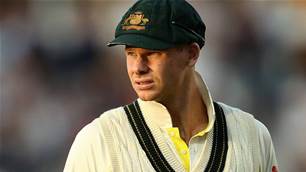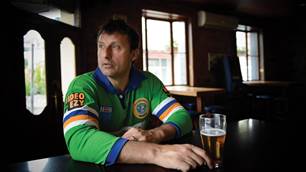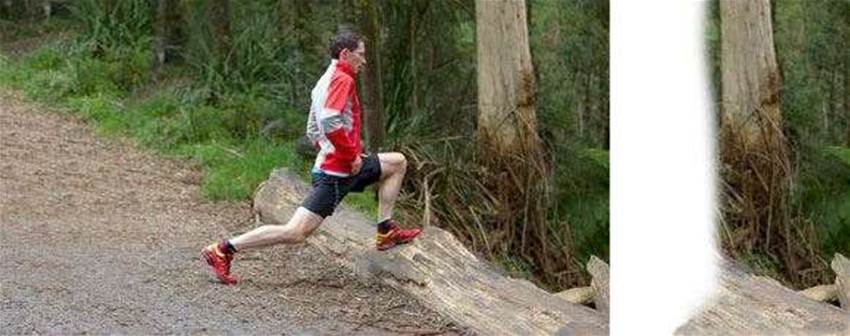Is Stuart Gibson the fittest man in Australia?
 “My training is all about mileage."
“My training is all about mileage."Images: Joseph Feil
Slow down
“About four weeks out from a big event, I’ll start to taper. I’m always experimenting with different tapering regimes, because tapering is a very personal thing. Some people don’t like tapering; their bodies don’t like the break, so they might only taper over five days ...
“Personally, I like to start tapering four weeks out, but it’s a very gradual taper. I might go from 180km one week, to 150 the next, then 130, then 90. The week before, the graph really drops off and I might only do, say, 60km. The week before the North Face 100 in the Blue Mountains, I only ran 45km. I like that gradual taper, but some of the guys I train with will really start to taper three weeks before. Their numbers will drop really quickly.”
Fast food
“I’m always experimenting with my food during runs. It’s a very personal thing. Some people might like bananas. Others might like artificial, high-carb enduro bars. At the moment I’m actually experimenting with some baby food. It’s in those squeezy packets and it’s very high-carb. I also like date paste and peanut butter – the carb concentration in those is amazing.
“The key is to get your stomach to accept the food, to process it after four or five hours of running. What tends to happen is that you take on all these artificial electrolytes and salt tablets and it suppresses your diet. You don’t feel hungry, but you must start to take on food otherwise you’re going to run out of fuel. I’ve really suffered from that in the past – you can actually feel your body starting to break down. It’s not a pleasant feeling.”
Holding weight
“I’m quite lucky as an ultra-runner because my weight doesn’t fluctuate that much. At the moment I’m coming back from an ankle injury and I’m probably sitting at 69kg.When I raced the North Face 100 this year my weight was
about 67kg. So it’s not a significant change.“But when you’re running high mileage each week your body burns thousands and thousands of calories, and to maintain your weight you have to eat a lot of complex carbohydrates. I find plain boiled rice is the best thing for ultra-running. Potatoes and pasta tend to be quite heavy and my body uses a lot of energy breaking them down. I find rice much more palatable, and it’s been proven that it’s a much slower burner. So that’s generally the choice of ultra-runners. I’d say my diet would be 90 per cent carbohydrate, 5 per cent protein and then the usual vitamins and minerals. I drink a lot of vegetable juices and fruit smoothies.
“The day before a race I’ll drink at least three to four litres of water with electrolyte powder mixed in. The night before I’ll have a boring rice dish - you’ve got to avoid spicy sauces. On the morning of the race, two hours before the start, I’ll have breakfast – two slices of toast with honey and peanut butter, a cup or two of yoghurt, and then I’ll start sipping on electrolytes. This tends to be early because most of these races start at five or six in the morning, but you have to eat two hours before so your body’s got a chance to break down that food.
“For the first hour and a half of a race you’re barely eating anything at all – you’re just letting your body settle into the rhythm. But after that you’ve got to start taking on liquid and salt tablets. After two and half hours you’ve probably used up 50 per cent of your glycogen, so you really need to start taking on food. Some of the older guys I run with at the South Melbourne Athletic Club used to down a tin of sweetened condensed milk. I’d be like, ‘Oh, yuk.’”
Related Articles

The Ultimate NRL 2020 Season Preview

December 2019 Inside Sport hits ‘em for six



.png&h=115&w=225&c=1&s=1)









